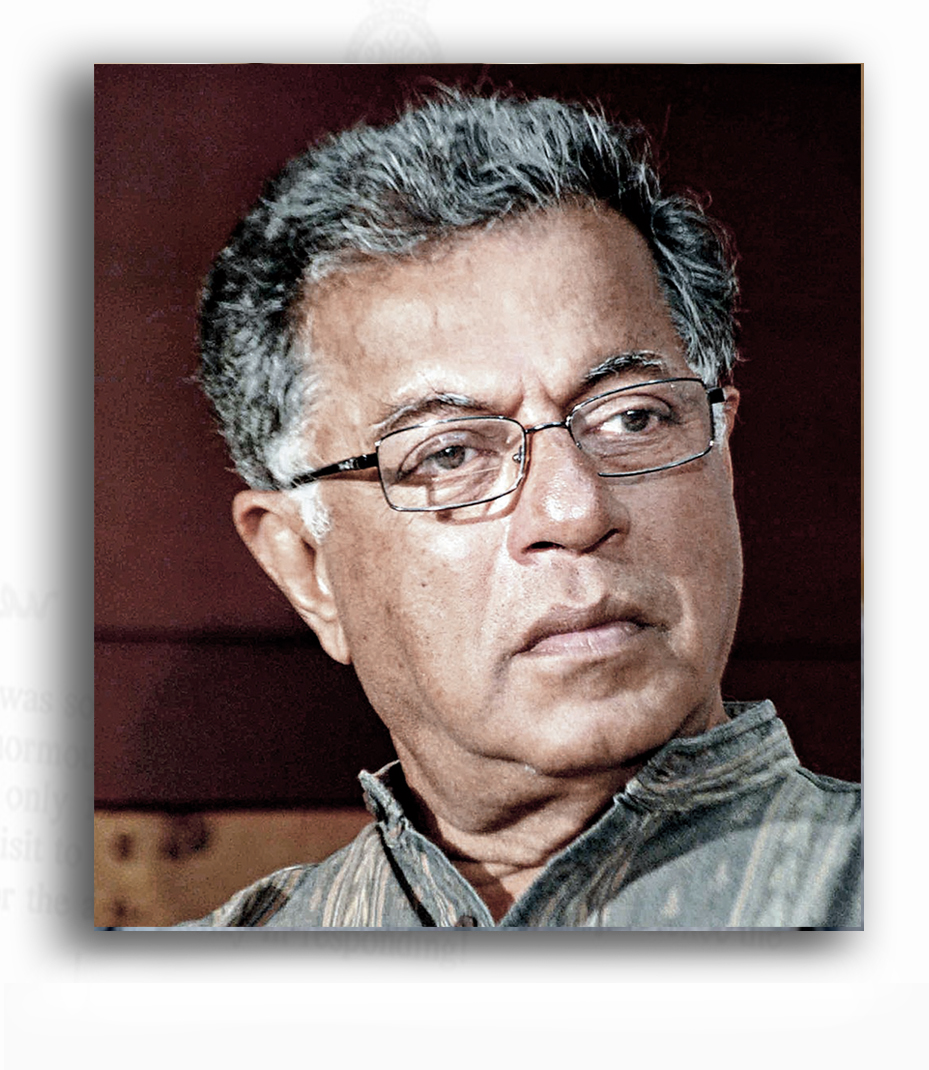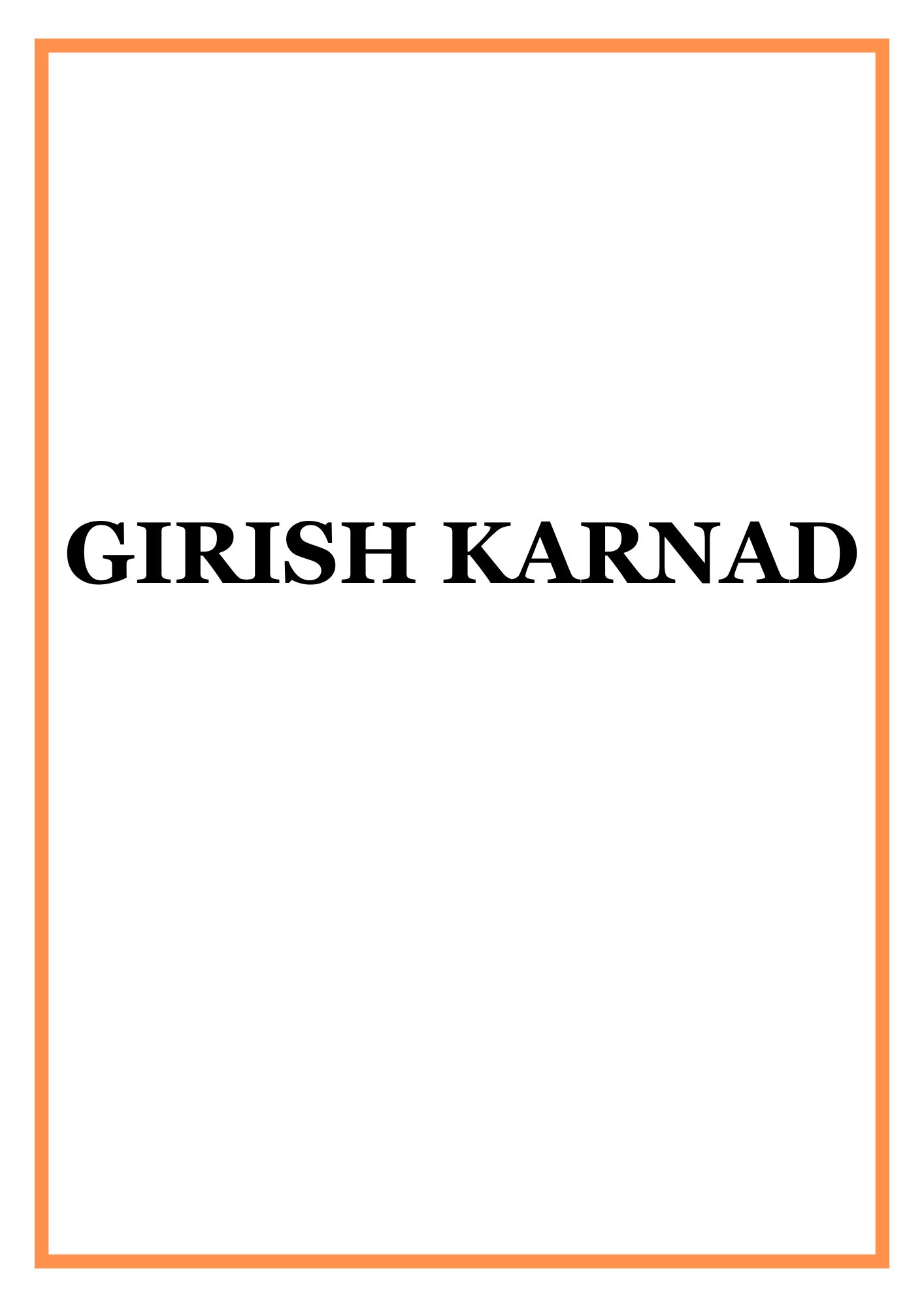Girish Karnad (b.1938-d.2019), was a renowned Kannada playwright, author, actor, film director, a Jnanpith awardee and Padma Bhushan recipient. He was a leading light of the new wave of progressive Hindi movies and radical Kannada art cinema of the 1970s and 1980s.
After graduating from Karnataka University in 1958, Girish Karnad studied philosophy, politics, and economics as a Rhodes Scholar at the University of Oxford (1960–63). After his return to India, Girish Karnad started working with the Oxford University Press in Chennai, 1963, and resigned in 1970 to devote full time to writing. At the young age of 35, he became the Director of the Film and Television Institute of India, Pune (1974–1975), was also its Chairman (1999-2001). He was a visiting Professor at the University of Chicago (1987–88). He served as the Chairman of the Sangeet Natak Akademi (1988–93), and the Director of the Nehru Centre, London (2000–2003).
Girish Karnad started his career in acting and screenwriting in a Kannada movie, Samskara (1970) and acted in more than 50 films including Hindi and other regional languages. The notable among them are Vamsha Vriksha, Swami, Manthan, Nishant, Ahista Ahista, Nagamandala, Sankeerthana, Dharam Chakram, Hey Ram, Iqbal, China Gate, Pukar, Ek Tha Tiger and Tiger Zinda Hai. He played the role of Swami’s father in the popular TV serial Malgudi Days. He also hosted the science magazine Turning Point on Doordarshan in the early 1990s.
A versatile author and playwright, he wrote several plays in Kannada and English, namely Yayati, Tughlaq, Hayavadana, Rakshasa Tangadi, Boiled Beans on Toast and Wedding Album. Yayti was written when he was only 23 years old. It is based on the story of King Yayati, one of the ancestors of Pandavas. He composed his plays using history and mythology to depict social contemporary issues. He himself translated his plays into English and some of his plays were translated into several Indian languages and directed by directors like Ebrahim Alkazi, Vijay Mehta and Amal Allanaa.
About the Collection: The papers of Girish Karnad relate to his multitudinous literary and cultural activities spanning over six decades and reflect his constant endeavour to forge a link of the past with the present in his writings. In addition to vital correspondence with Doordarshan, Sangeet Natak Akademi, National School of Drama (New Delhi), Janus Films (New York), and several film and theatre personalities like, E. Alkazi, Satyajit Ray, Vijay Tendulkar, Amal Allana, Peter Brook, Vijaya Mehta and A.K. Ramanujan, the collection also contains papers of the Nehru Centre, London, and Guthrie Theatre, Minneapolis, USA. Besides, there are conference and seminar papers; book reviews, translations, interviews and articles; scripts/manuscripts/drafts of documentaries, telefilms and TV serials; and CDs of films, press clippings and photographs showcasing his contribution to the new wave of progressive Hindi movies and radical Kannada art cinema of the 1970s and 1980s. The collection includes personal and travel diaries, notebooks and memoirs, and also private papers of his parents. (Catalogue available)




